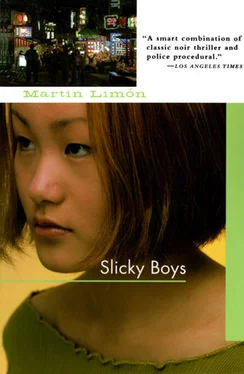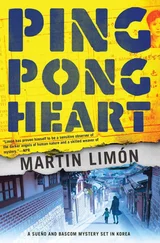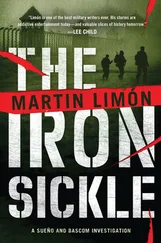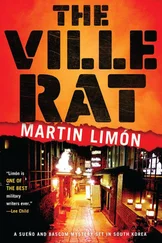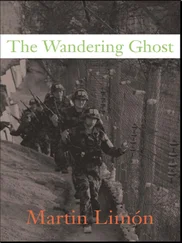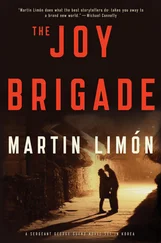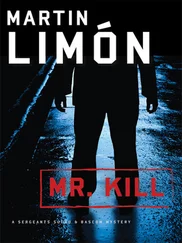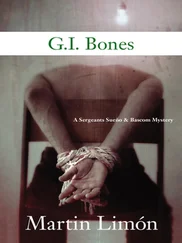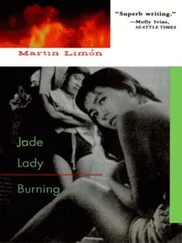Martin Limon - Slicky Boys
Здесь есть возможность читать онлайн «Martin Limon - Slicky Boys» весь текст электронной книги совершенно бесплатно (целиком полную версию без сокращений). В некоторых случаях можно слушать аудио, скачать через торрент в формате fb2 и присутствует краткое содержание. Жанр: Полицейский детектив, на английском языке. Описание произведения, (предисловие) а так же отзывы посетителей доступны на портале библиотеки ЛибКат.
- Название:Slicky Boys
- Автор:
- Жанр:
- Год:неизвестен
- ISBN:нет данных
- Рейтинг книги:5 / 5. Голосов: 1
-
Избранное:Добавить в избранное
- Отзывы:
-
Ваша оценка:
- 100
- 1
- 2
- 3
- 4
- 5
Slicky Boys: краткое содержание, описание и аннотация
Предлагаем к чтению аннотацию, описание, краткое содержание или предисловие (зависит от того, что написал сам автор книги «Slicky Boys»). Если вы не нашли необходимую информацию о книге — напишите в комментариях, мы постараемся отыскать её.
Slicky Boys — читать онлайн бесплатно полную книгу (весь текст) целиком
Ниже представлен текст книги, разбитый по страницам. Система сохранения места последней прочитанной страницы, позволяет с удобством читать онлайн бесплатно книгу «Slicky Boys», без необходимости каждый раз заново искать на чём Вы остановились. Поставьте закладку, и сможете в любой момент перейти на страницу, на которой закончили чтение.
Интервал:
Закладка:
During the Korean War, much of Seoul had been leveled. But many of these old walkways and flights of stairs had survived. Not worth wasting a shell on. New buildings had been constructed on the old foundations. The Peikchae Yoguan was one of those, although the inn was made of cheap wood that was already splintering and starting to rot.
An open spot in the flights of stone stairways spread out enough to make room for a stone bench. Flashlights swirled. Men mumbled. Some squatted and took photographs of footprints or collected minuscule items from the snow with tweezers and dropped them into plastic bags.
The Korean National Police. The all-pervasive law enforcement arm of the government of the Republic of Korea. A federal police force with representatives in every city, town, and village in the country. None of them looked back when we walked up.
The spot was isolated. The high walls around us were the backs of two- and three-story buildings. Tiny windows gazed out on us like half-shut eyes. The entrance to the Peikchae Yoguan was around another flight of crooked stairs with no direct line of sight from the front door. Whoever had chosen this place had chosen it well.
No lighting. At the bottom of a pit of stone and brick in the middle of an indifferent city. The perfect spot for a killing.
We scanned the soot-flaked ice looking for a stiff.
Ernie stepped closer to take a look at a drift of snow up against a short stone wall. He walked back.
“Tried to deep-freeze the son of a bitch.”
“What?”
“Yeah. Hid him under the snow.”
I sidled my way in closer, watching where I stepped.
In the center of the clustered policemen lay a body, already turning blue. When a beam of light slid over the corpse I saw what resembled the guy we had talked to this morning: Cecil Whitcomb. But it was a lifeless thing. As drained of color as death itself. Eyes wide. Blood spattered like spreading satin on the frozen sheet beneath him.
Whoever killed Cecil had dug out a hole for him in the drift and tried to cover him up. It hadn’t worked well because the body made a lump in the smooth blanket of white lace that covered, the city. But to the unobservant it would pass unnoticed. And probably all the killer wanted was a few minutes to make his getaway. This frail camouflage had given him that time.
Somebody finally decided to notice us. A tall Korean man. Almost six feet. A long gray overcoat, slicked-back hair, and a hawk nose under almond eyes. I wondered if he didn’t have an ancestor who had ridden as one of the Middle Eastern auxiliaries with the hordes of Genghis Khan. He approached slowly. I nodded and we greeted one another. His English was precise. Careful. As were his movements.
“Are you Inspector Bascom?”
Mexican or Anglo, we were all just Americans in the eyes of a Korean policeman. When I was growing up in Southern California that attitude would’ve come in handy if more people had shared it. Saved me a few lumps.
“No,” I said. “I’m George Sueno. This is my partner, Ernie Bascom.”
Ernie ignored the tall cop and continued to gaze at the body and chomp on a fresh stick of gum.
“I’m Lieutenant Pak. Namdaemun Police Precinct.”
He stuck his hands farther into his pockets and turned his head toward the corpse. “I understand that this person is not an American.”
“No. British. Cecil Whitcomb.”
“You knew him?”
“I’ve seen him.” Lieutenant Pak waited, as if expecting a fuller explanation. I gave it to him. “He was in the United Nations Honor Guard. Since they’re such a small contingent they’ve turned over police power to us at Eighth Army. They fall under our jurisdiction.”
Pak shook his head. “Murders in Seoul fall under my jurisdiction.”
He was right. According to the treaty between the U.S. and Korea, any crimes involving United Nations personnel that happen off a military compound can be handled by the Korean National Police if they choose to exercise jurisdiction.
Our role would be as observers, unless Pak asked for our help. I expected he would.
Two men in blue jumpsuits trotted past us, carrying a folded canvas stretcher. They knelt near the body and hoisted it out of its capsule of ice.
Whitcomb’s necktie and white collar had been twisted askew. Dressed for an appointment downtown. No American GI would wear a white shirt and tie unless he had to. Who could understand these Brits?
I motioned for the men to wait and knelt near the stretcher. I grabbed one of their flashlights and played it over the body. The sleeves of Whitcomb’s jacket had been shredded, as if someone had slashed them repeatedly with a sharp, razorlike blade. His hands and wrists had also been cut, along with portions of his ear and cheek. None of the cuts were deep, except for the big one in the center of his chest.
I pulled open a fold in the white shirt. He wore green woolen underwear. The caked blood made me think of the colors of Christmas. Apparently the knife had entered just below the sternum. One deft gash into the heart.
I lifted his lifeless hand and checked under the fingernails. Nothing. Maybe a lab could find a trace of flesh, but I couldn’t see any. I dropped the limp hand and turned back to Lieutenant Pak.
“What have the neighbors said?”
“So far, nothing. My men are out now.” He waved at the high canyon walls surrounding us. “Asking questions.”
In the flickering beam of the flashlight, I studied the footprints in the crusted snow, “There was a fight. Someone must’ve heard something.”
“Maybe.” Pak looked at me steadily. “But sometimes men fight and don’t make noise.”
He was right about that. Sometimes you’re too preoccupied with saving your life. Screaming can wait.
Ernie checked the body as the men with the stretcher lifted it up. He sniffed the air above it, as if examining a side of beef, and chomped more furiously on his wad of gum. He didn’t say anything.
I glanced up the stairway leading to the yoguan. A light blazed yellow and the front door of the inn was open. At least someone in the neighborhood had taken note of all the commotion. I started up the steps. Ernie followed. So did Lieutenant Pak.
The big wooden double doors of the rickety wooden building were unbarred, and an elderly man and woman peeped out around the entrance. They stood at the end of a long wood-slat hallway that had been varnished and revarnished maybe a million times. The floor squeaked beneath our feet.
The woman wore a long cotton housedress and folded her arms over a thick sweater. A black bandana tied around her forehead hid almost all of her liver spots. The man was thinner, with wispy white hair. He wore the loose pantaloons and shiny silk vest of the ancient Korean patriarchs.
Even though Ernie and I walked in first, they ignored us and bowed to Lieutenant Pak.
“Oso-oseiyo.” Come in, please.
Lieutenant Pak nodded back. Before he could speak I shot a question at the couple in Korean.
“Yogiei junim ieyo?” Are you the owners here?
Both nodded. Lieutenant Pak leaned back, mildly surprised that I could speak the language. Not many GI’s bother to learn.
“Did you see any foreigners tonight?” I asked.
They both shook their heads. The husband smiled, as if he had suddenly encountered a talking horse, but the wife found her voice.
“No. No foreigners.”
I twisted my head toward the murder site. “Did you hear anything-shouting, fighting-earlier this evening?”
The woman shook her head again. “Once curfew comes, we lock up and go to bed. We never stay open past curfew.”
Not unless they have customers, 1 thought. The old woman was parroting the lines because of the presence of a Korean National Police officer. Not that Lieutenant Pak would give a damn if the inn stayed open past midnight, but Koreans are a cautious people. Especially when dealing with government officials.
Читать дальшеИнтервал:
Закладка:
Похожие книги на «Slicky Boys»
Представляем Вашему вниманию похожие книги на «Slicky Boys» списком для выбора. Мы отобрали схожую по названию и смыслу литературу в надежде предоставить читателям больше вариантов отыскать новые, интересные, ещё непрочитанные произведения.
Обсуждение, отзывы о книге «Slicky Boys» и просто собственные мнения читателей. Оставьте ваши комментарии, напишите, что Вы думаете о произведении, его смысле или главных героях. Укажите что конкретно понравилось, а что нет, и почему Вы так считаете.
